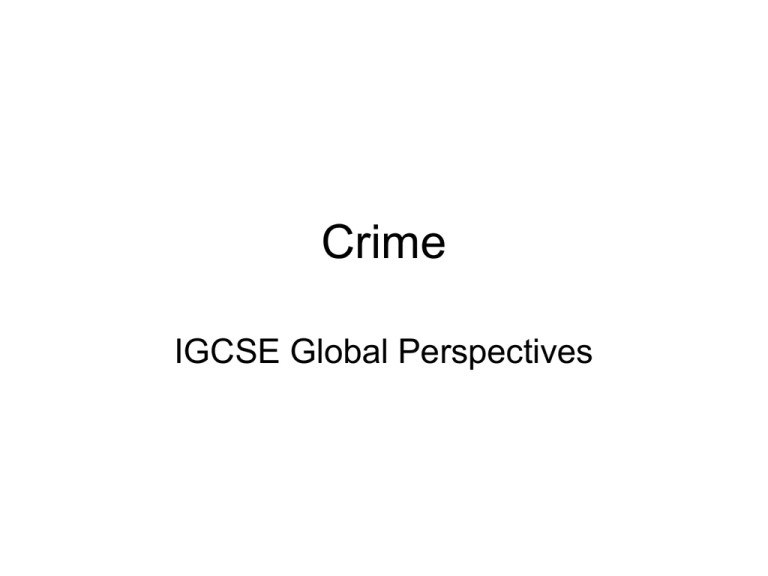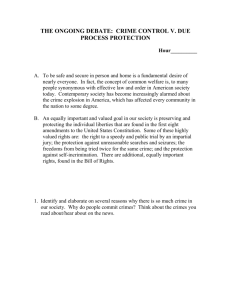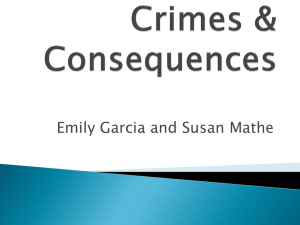Crime
advertisement

Crime IGCSE Global Perspectives Etymology The word crime originates from the Latin crīmen (genitive: criminis), from the root of Latin cernō = "I decide, I give judgement" and Greek κρινω = "I judge". Originally the Latin word crīmen meant "charge (in law), guilt, accusation". Crime • A normative definition views crime as deviant behavior that violates prevailing norms. • An act or omission that violates the law and is punishable by a sentence of incarceration. • An offence against the state that is punishable. Offence • A crime. • The modern tendency is to refer to crimes as offences. • Offences may be classified as indictable or summary and as arrestable or nonarrestable. Property crime • Crimes that affect another person's rights of ownership (or in some cases possession or control). • Property crime is a category of crime that includes, among other crimes, theft, burglary, larceny, robbery, motor vehicle theft, arson, forgery, forcible entry, criminal damage, deception, and vandalism. • Property crime only involves the taking of money or property, and does not involve force or threat of force against a victim. Public order crime • It is behaviour that has been labelled criminal because it is contrary to shared norms, social values, and customs. • Generally speaking, deviancy is criminalized when it is too disruptive and has proved uncontrollable through informal sanctions. Violent crime • A violent crime or crime of violence is a crime in which the offender uses or threatens to use violent force upon the victim. • This entails both crimes in which the violent act is the objective, such as murder, as well as crimes in which violence is the means to an end, such as robbery. • Violent crimes include crimes committed with and without weapons. • With the exception of rape (which accounts for 6% of all reported violent crimes), males are the primary victims of all forms of violent crime. Crime against international law • Crimes that affect the proper functioning of international society. • Some authorities regard so-called international crimes as crimes of individuals that all or most states are bound by treaty to punish in accordance with national laws passed for that purpose. Examples of this type of crime are piracy, hijacking, and war crimes. • The International Law Commission (UN) has formulated Draft Articles on State Responsibility, which attempt to define international crimes for which individual states are liable. • It gives as examples: (1) a serious breach of an international obligation essential to safeguard international peace (e.g. aggression) or peoples' rights to self-determination (e.g. colonial domination by force); (2) a widespread and serious breach of obligations essential to safeguard individuals (e.g. slavery, genocide, or apartheid) or the environment (e.g. massive pollution).






